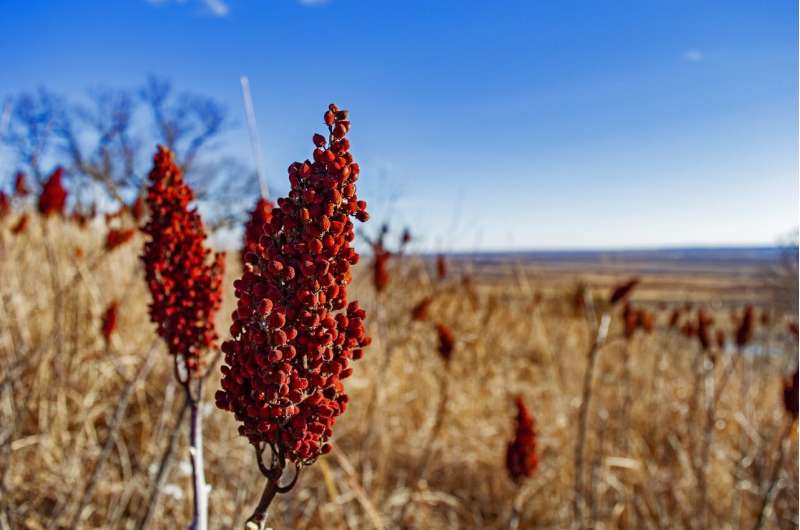Credit: CC0 Public Domain
A large team of researchers affiliated with multiple institutions across the U.S. and one in Canada has found that the 2000-2010 drought in the Upper Missouri River Basin was the driest in the past 1,200 years. In their paper published in Proceedings of the National Academy of Sciences, the group describes their analysis of data from the PAGES 2k project and what it showed them.
Prior research has shown that there have been droughts over the past several decades across multiple river basins in the U.S. that are unlike anything seen in the prior century. And because these river basins provide drinking water for millions of people, scientists are eager to better understand the nature of such droughts in hopes of predicting and managing their impacts better.
In this new effort, the researchers looked at the Missouri River Basin. The Missouri River is the longest river in North America. It is fed by snow that falls on the Rocky Mountains in the winter and melts in the spring and summer, and is one of the main feeder rivers to the Mississippi River. To learn more about droughts in the river basin, the researchers pulled data from the PAGES 2k project—a network of databases and other resources that have been assembled to describe conditions on Earth over the past 2000 years. Some of the information in its databases includes tree ring data for many parts of the Missouri River Basin.
Using this data, the researchers were able to build a timeline for the basin that included changes to both temperature and rainfall. They were able to see that the drought over the years 2000 to 2010 was the driest that had occurred over the past 1,200 years—worse even than that which occurred during the dust bowl years. They also found that the main driver of the draught was higher than normal temperatures that have been influencing streamflow by reducing runoff efficiency since at least the latter part of the 20th century. They further note that higher average temperatures have also led to higher evapotranspiration in the river basin. They close their paper by issuing a warning for the future—they expect increasingly severe droughts and water deficits in the region in the coming years.
More information: Justin T. Martin et al. Increased drought severity tracks warming in the United States' largest river basin, Proceedings of the National Academy of Sciences (2020). DOI: 10.1073/pnas.1916208117
Journal information: Proceedings of the National Academy of Sciences
© 2020 Science X Network
























